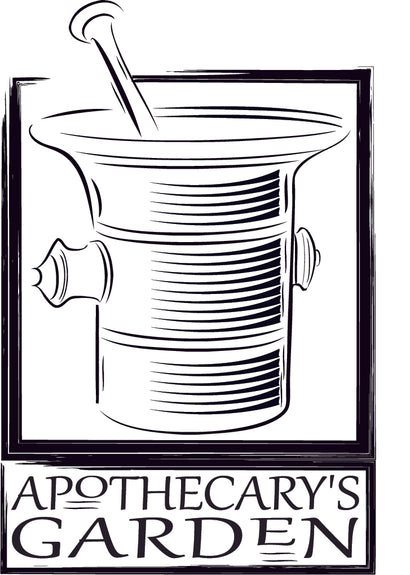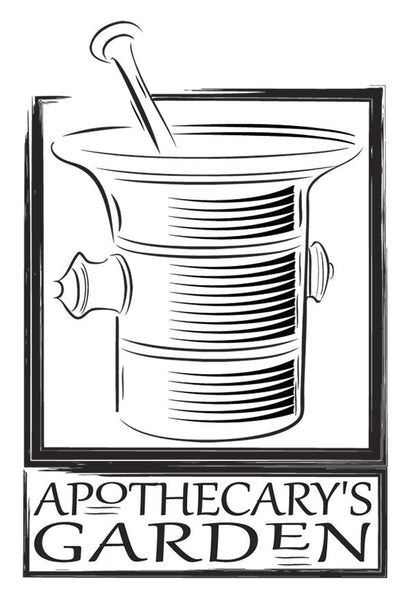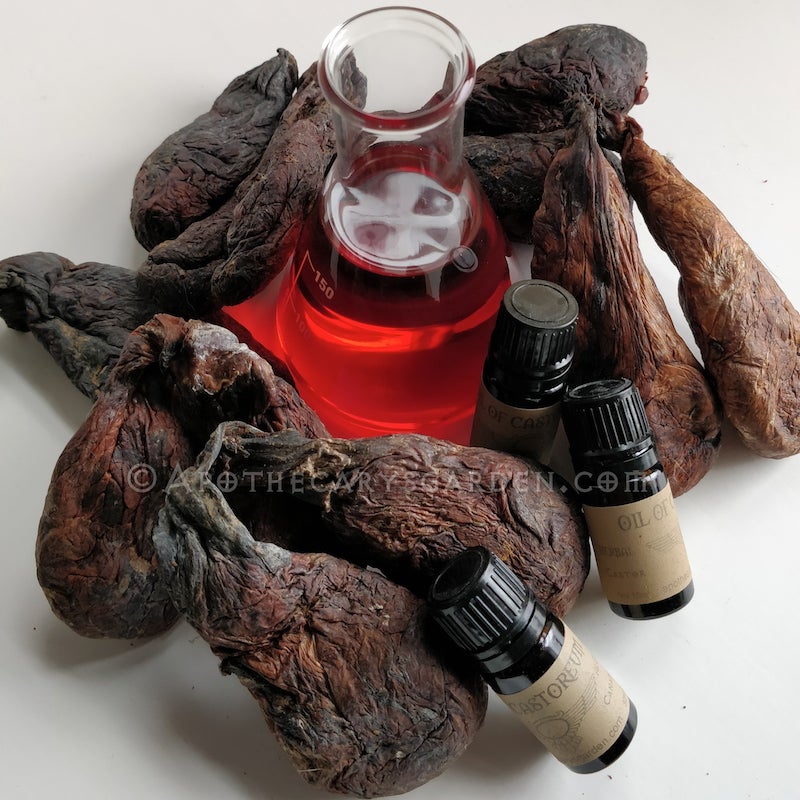
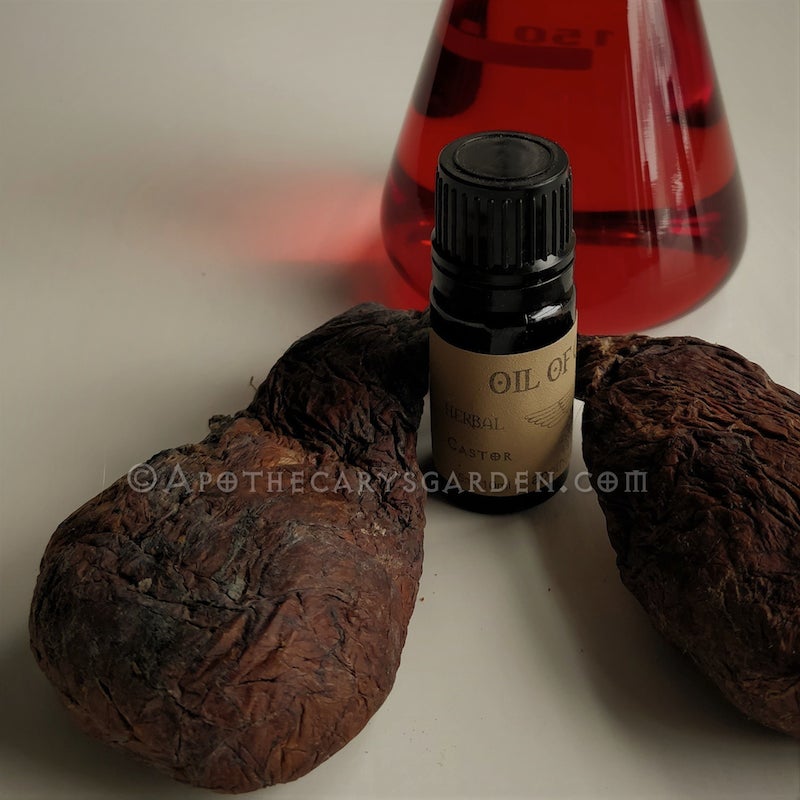
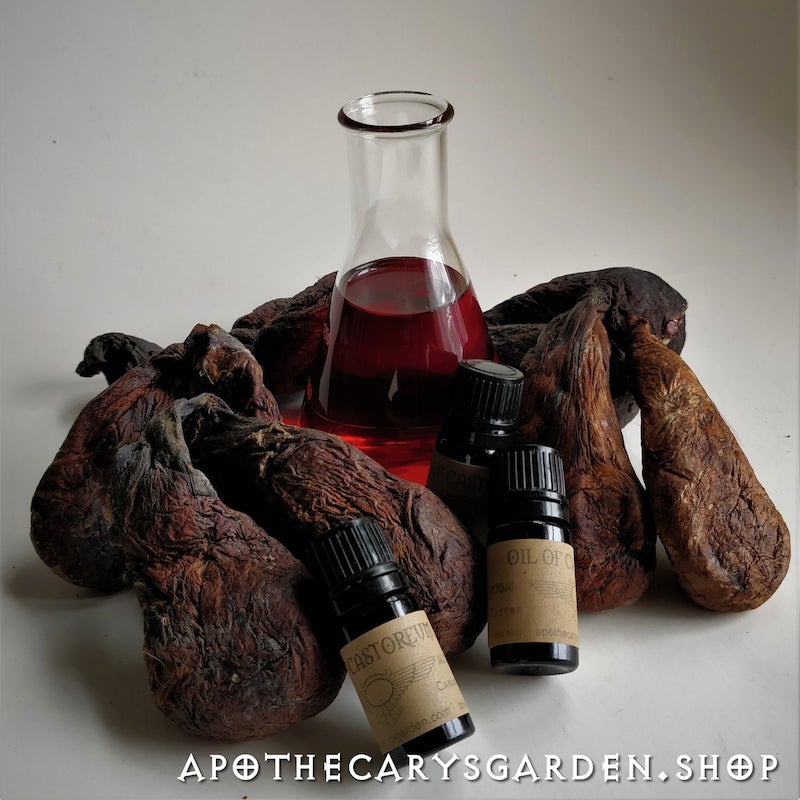
Castoroleum-Castoreum Oil
Castoroleum is an oil extract of cured beaver Castors for oil-based/solid perfumes, beard oils and Moustache waxes. Like the alcohol tincture of Castor, the oil extract helps fix a fragrance and adds deep soft and enduring leather notes.
After a few years of experimenting and exploring various processes, I finally found a method that yields consistently high-quality perfume oil from Beaver Castor. And I called it Castoroleum.
This product is made using a hot oil infusion and a 6-month maceration of the ground, cured Castors in warm Fractionated Coconut oil.
When full Castor sacs are properly cured, one finds a solid, brittle, aromatic resin that will mostly dissolve in alcohol and warm oils.
Castoroleum is prepared at a concentration of 1:3 using 1-2 year cured Canadian Beaver Castors infused/extracted in Fractionated Coconut oil which has an indefinite shelf life.
I used a small amount of Benzyl Benzoate to first loosen up the material and draw out some of the compounds that were reluctant to dissolve in Fractionated Coconut oil. Benzyl Benzoate is an aromatic compound and solvent that is found in abundance in Benzoin resin, Ylang Ylang flowers, Beaver Castors and other aromatic materials. It has become my go-to solvent for resins and compounds that need a little help dissolving in alcohol or oils. Benzyl benzoate has a slight vanilla-ish odour and acts as a fixative in perfumery. It dissolves in both alcohol and oils.
Once upon a time, most, if not all our perfumes were oil based. We had developed sophisticated methods and techniques for producing high-quality and enduring perfumes from the natural materials around us. Unfortunately, we have lost much of this knowledge.
The Castor glands used to prepare Castoroleum are purchased from Canadian trappers who are licensed by the Provincial government to cull a specific number of Beavers each year. The culling is part of a program to maintain an optimum number of beaver colonies, a healthy Beaver population and avoid conflict between animals and man. Beavers cannot be transported to new areas since they are HIGHLY territorial and do not take well to the proximity of other beaver clans. The use of illegal leg traps is banned by Canadian provincial governments.
For instructions on how to prepare your own Castoreum and other aromatic products from Castors, please see my post here-https://apothecarysgarden.com/blogs/blog/how-to-prepare-castoreum-and-other-aromatic-delights
Dan
Materials: Aged Castors, FCO, Fractionated Coconut oil, Beaver Castors, benzyl benzoate.
